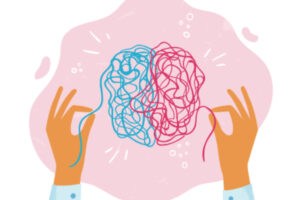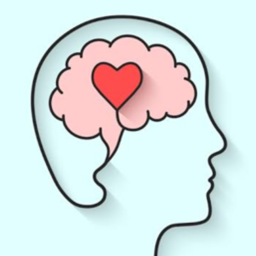Are you struggling with OCD in your relationship? Do you feel like you can’t seem to shake the thoughts and fears that are impacting your life together? You’re not alone. Relationship OCD is a very common type of OCD, and it can be tough to overcome. In this blog post, we will discuss some of the best ways to deal with relationship OCD and get back to enjoying your life together!
Contents
Defining ROCD

Relationship OCD, often popular by the acronym ROCD, is a subtype of OCD in which an individual experiences intrusive thoughts, images, or doubts about their relationship. These thoughts can be about the person’s attractiveness, fidelity, compatibility, or even whether or not they are truly “in love.” ROCD can also cause a person to excessively question their partner’s actions and behaviors, looking for signs that they may be cheating or lying. In some cases, ROCD can even lead to a person breaking off a relationship that they otherwise would have been happy with.
It is important to note that ROCD is different from simply having doubts or concerns about a relationship. We all have moments where we question our partner’s actions or wonder if we are really compatible. What sets ROCD apart is that these thoughts and doubts become so excessive and intrusive that they begin to interfere with your daily life. It can also prove to be extremely distressing, uncomfortable, and also burdening for the other partner. If you’re in a relationship with someone who has OCD, you may feel like you’re constantly walking on eggshells. You may feel like you can’t do anything right, and that your partner is never happy.
If you are struggling with ROCD, it’s important to understand that you are not alone. This is a very common type of OCD, and there are many resources available to help you and your partner overcome it.
Signs That You Need ROCD Treatment

As we already know, ROCD is defined by the presence of intrusive, unwanted thoughts about your relationship. If you find that you are struggling with any of the following, it may be time to seek out treatment:
- Fixation on your partner’s perceived flaws and wondering if you are truly compatible
- Constantly questioning your relationship and your partner’s feelings for you
- Frequent comparisons of your relationship with others and feel like yours falls short
- Having a fear of abandonment or being alone that leads you to constantly check in with your partner or look for reassurance
- Doubting your own ability to be a good partner or questioning whether you are truly in love
- Finding yourself questioning whether or not you are really in love with your partner
- Avoiding all forms of intimacy with your partner out of fear that it will “confirm” your fears about the relationship
- Constantly doubt your partner’s fidelity, even if there is no evidence to support your fears
- Intrusive thoughts about causing harm to your partner
- Withdrawing from your friends and family in order to focus all of your energy on your relationship
- Having the need to “test” your relationship by creating scenarios in which you can gauge your partner’s reaction (e.g., asking them repeatedly if they still love you)
In addition of all these signs, people who do not have OCD but are dating someone with ROCD may find that their partner is constantly asking for reassurance, talking about the relationship obsessively, or being overly possessive.
If you are struggling with any of the above, it is important to seek out treatment from a mental health professional who specializes in OCD. While there is no “cure” for OCD, with proper treatment, you can learn to manage your symptoms and live a happy, healthy life.
If you find yourself struggling with any of the above, it may be time to seek out professional help. A therapist who specializes in OCD can help you learn how to manage your intrusive thoughts and ease your anxiety.
Types Of ROCD Treatment

ROCD treatment has multiple approaches and techniques. All of these aim to help you manage your intrusive thoughts and ease your anxiety.
Cognitive Behavioral Therapy (CBT)
CBT for relationship OCD is one of the most popular and effective methods of treatment. CBT focuses on helping you to understand and change the thoughts and behaviors that are keeping you trapped in a cycle of OCD. It works by helping you to see the relationship between your thoughts, emotions, and behaviors. With this understanding, you can start to challenge and change the negative beliefs that are causing your OCD. It also teaches you how to manage and cope with your anxiety in a healthy way. Some ways by which CBT eases ROCD are by:
- Identifying and acknowledging the root of your thoughts
- Helping you manage your intrusive and unwanted thoughts in a more positive light
- Challenging the negative beliefs that you have about your relationship
- Teaching you how to better cope with uncertainty in your relationship
- Reducing avoidance behaviors that only serve to fuel anxiety
- Providing you with tools to manage anxiety and stress
All of these benefits can provide for a more positive outlook on your relationship, as well as provide you with skills to manage OCD in other areas of your life.
Exposure and Response Prevention (ERP)
This type of therapy is suggestive for those who want to face their fears directly. ERP works by gradually exposing you to the thoughts and situations that trigger your OCD. As you become more comfortable with these triggers, you will learn how to manage your anxiety and resist the urge to engage in compulsive behaviors. This approach can be done with the help of a therapist or on your own. However, it is important to work with a therapist if you have never done exposure therapy before.
In context of ROCD, this approach works by helping you to develop a more balanced and realistic view of your partner. This means that you will learn to question your obsessive thoughts and doubts about your relationship and to focus on your partner’s positive qualities instead of their negative ones. In addition, you will learn how to manage the anxiety that comes with ROCD, and how to communicate effectively with your partner about your OCD.
For example, you may be obsessively doubting your partner’s fidelity, and as a result, you may avoid all physical contact with them. Or, you may be afraid of abandonment and as a result, you may constantly seek reassurance from your partner. However, with ERP, you can learn to challenge and reframe your thoughts, and as a result, you can reduce your anxiety and live a more fulfilling life.
Acceptance and Commitment Therapy (ACT)
By the name of it, one might be able to figure out that acceptance and commitment therapy has to do with learning to accept the things we cannot change. In the context of ROCD, this means accepting that you have OCD and that your thoughts are not always accurate. This can be a difficult task, but it is an important step in overcoming your OCD. In addition, ACT also focuses on commitment; once you have accepted that you have OCD, you can then commit to taking steps to manage your OCD and live a more fulfilling life. Moreover, ACT has been found to be an effective treatment for OCD, and it can be done in both individual and group settings.
Psychodynamic Therapy
Psychodynamic therapy is one of the most traditional forms of therapy, and it focuses on the unconscious mind and how it affects our behavior. In the context of ROCD, this means exploring the underlying reasons for your obsessive thoughts and doubts about your relationship. This can be a difficult process, but it can be very helpful in understanding your OCD and learning to manage it. It can also be a benefit for the partner dealing with the sufferer of OCD . It can help them understand the OCD and how to best support their partner.
Couples Counseling
Lastly, couples counseling can be a very helpful treatment for ROCD. This is because it can help you and your partner to communicate more effectively, to understand each other’s needs, and to develop a more supportive relationship. It can also help you to learn how to manage your OCD in the context of your relationship, and how to deal with any conflict that may arise in general. It also provides a safe space for you to talk about your relationship and OCD.
There are many different types of treatment available for ROCD, and it is important that you find the one that is right for you. If you are struggling with ROCD, please reach out to a mental health professional to get help. You don’t have to suffer from this disorder, and there is hope for recovery.
Benefits Of ROCD Treatment
Seeking the right type of professional help can provide an array of benefits. In addition to the ones above, some more benefits of ROCD treatment include:

- Decrease in anxiety and feelings of nervousness: One of the main goals of treatment is to help you feel less anxious. This can be accomplished through education about your disorder, learning healthy coping and problem-solving skills, and practicing exposure and response prevention (ERP).
- More understanding: Getting professional help for your ROCD can provide you with a greater understanding of the disorder. This, in turn, can lead to more self-compassion and patience as you work on recovery. It can also help build empathy, resilience, compassion, and deeper relationships with others as you better understand how your disorder affects those around you.
- Increase in self-esteem and confidence: As you work on your ROCD, you’ll likely find that your self-esteem and confidence increase. This is because you’ll be addressing the root causes of your low self-esteem. You will also be learning how to effectively manage your disorder.
- Improvement in intimacy issues: Many people with ROCD struggle with intimacy issues. Treatment can help you work through these issues and improve your intimate relationships. It can make it easier to communicate with your partner, build trust, and feel more connected and safe.
- Ability to manage and cope with stressful situations more effectively: ROCD may not assure that you will never encounter any obstacles. It rather strives to empower you with the skills and knowledge necessary so that you can manage and cope with stressful situations more effectively. Treatment can provide you with greater control and understanding of your problems.
- Improved communication skills: Therapy can also help improve the way you communicate with your partner. You’ll learn how to express your needs and wants in a more effective way, as well as how to listen to and understand your partner’s perspective.
- Conflict resolution skills: Learning healthy conflict resolution skills is another important part of treatment. You’ll learn how to effectively handle disagreements without letting them turn into arguments or fights.
All-in-all, seeking professional help is an important step in overcoming ROCD. It can provide you with the tools and skills you need to manage your disorder and improve the quality of your relationship. If you or your partner is struggling with ROCD, it’s important to seek professional help. A therapist can provide you with the tools and skills needed to overcome OCD in your relationship.
Things To Consider
If you and your partner are considering taking ROCD treatment, it is important to keep some key points in mind
- Treatment must cater to both partners: It is important that both partners are involved in the treatment process. This will help each partner understand the other’s perspective and needs. In addition, it can help build trust and communication between the two of you.
- Treatment takes time: Be patient with yourself and your partner as you go through treatment. It takes time to learn new skills and change old habits. There will likely be ups and downs throughout the process, but don’t give up!
- Treatment requires effort: In order for treatment to be successful, both partners need to be committed to making changes. This means being willing to openly communicate, trying new things, and being patient with each other.
- Treatment is not a “quick fix”: There is no “quick fix” for ROCD. Treatment requires time and effort from both partners. However, the rewards of treatment are worth it! You can expect to see improvements in your relationship as you work through treatment.
- Find the right therapist: It is important to find a therapist who you feel comfortable with and who has experience treating ROCD. Be sure to interview several therapists before making a decision.
- Figure out logistics: Lastly, it is important to figure out the logistics of treatment. Will you see a therapist together or individually? How often will you meet? What type of therapy will you do? How will you manage the costs? These are all important considerations to make before starting treatment.
ROCD can be a difficult disorder to live with, but there is hope. If you are considering ROCD treatment, it is important to keep these things in mind. Treatment takes time and effort, but it is worth it!
Conclusion
In conclusion, relationship OCD is a serious disorder that can have a negative impact on your relationship. If you or your partner are struggling with ROCD, it is important to seek professional help. It can help you learn the skills and knowledge necessary for overcoming OCD in your relationship. Do thorough research about different types of treatment. Further make sure you find the one that is best suited for you and your partner. Remember, treatment takes time, effort, and commitment. With the right motive, treatment can help you improve the quality of your relationship.
If you or your partner are struggling with relationship OCD, you may seek help from Therapy Mantra. We have a team of highly trained and experienced therapists who can provide you with the tools and skills necessary for overcoming OCD in your relationship. Our sessions are open for couples as well as individuals across the globe at affordable rates. Contact us today to schedule an online therapy or download our free OCD treatment app on Android or iOS for more information.


